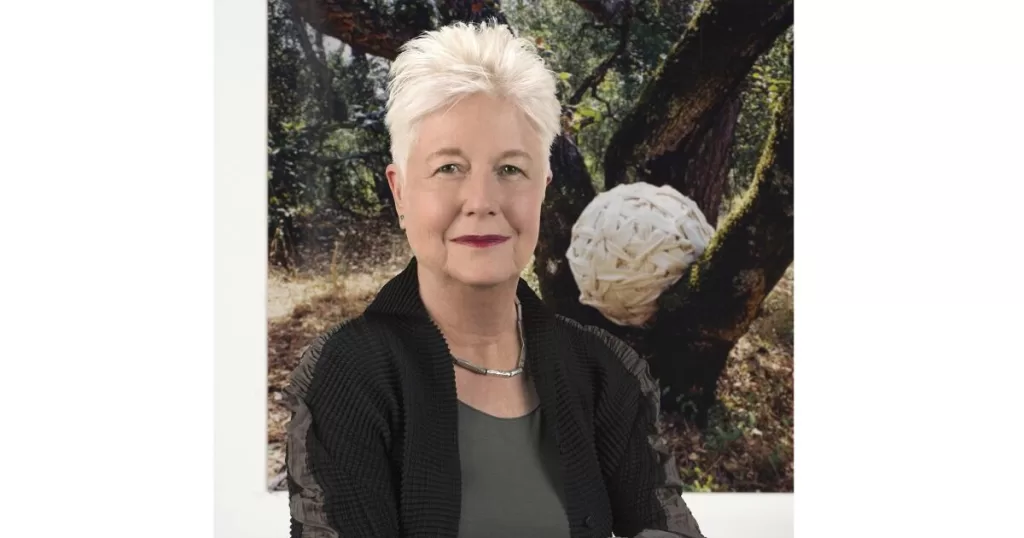Coppola died Friday at home in Rutherford, Calif., her family announced in a statement.
Eleanor, who grew up in Orange County, met Francis while working as an assistant art director on his directorial debut, the Roger Corman-produced 1963 horror film “Dementia 13.” (She had studied design at UCLA.) Within months of starting to date, Eleanor became pregnant and the couple were wed in Las Vegas in February 1963.
Their first-born, Gian-Carlo, quickly became a regular presence in his father’s films, as did their subsequent children, Roman (born in 1965) and Sofia (born in 1971). After acting in their father’s films and growing up on sets, all three would go into the movie business.
“I don’t know what the family has given except I hope they’ve set an example of a family encouraging each other in their creative process whatever it may be,” Eleanor told the Associated Press in 2017. “It happens in our family that everyone chose to sort of follow in the family business. We weren’t asking them to or expecting them to, but they did. At one point Sofia said, ‘The nut does not fall far from the tree.’”
Gian-Carlo, who’s seen in the background of many of his father’s films and had begun doing second-unit photography, died at age 22 in a 1986 boating accident. He was killed while riding in a boat piloted by Ryan O’Neal’s son Griffin O’Neal, who was found guilty of negligence.
Roman directed several movies of his own and regularly collaborates with Wes Anderson. He is president of his father’s San Francisco-based film company, American Zoetrope.
Sofia became one of the most acclaimed filmmakers of her generation as the writer-director of films including “Lost in Translation” and the 2023 release “Priscilla.” Sofia dedicated that film to her mother.
In joining the family business, the Coppola children weren’t just following in their father’s footsteps but their mother’s too. Beginning on 1979’s “Apocalypse Now,” Eleanor frequently documented the behind-the-scenes life of Francis’ films. The Philippines-set shoot of “Apocalypse Now” lasted 238 days. A typhoon destroyed sets. Martin Sheen had a heart attack. A member of the construction crew died.
Eleanor documented much of the chaos in what would become one of the most famous making-of films about moviemaking, 1991’s “Hearts of Darkness: A Filmmaker’s Apocalypse.”
“I was just trying to keep myself occupied with something to do because we were out there for so long,” Eleanor told CNN in 1991. “They wanted five minutes for a TV promotional or something and I thought sooner or later I could get five minutes of film and then it went on to 15 minutes.”
“I just kept shooting but I had no idea … the evolution of myself that I saw with my camera,” continued Eleanor, who ended up shooting 60 hours’ worth of footage. “So it was a surprise for both of us and a life-changing experience.”
Eleanor also published “Notes: On the Making of ‘Apocalypse Now’” in 1979. While the documentary focused on the film set tumult, the book charted some of Eleanor’s inner turmoil, including the challenges of being married to a larger-than-life figure. She wrote of being a “woman isolated from my friends, my affairs and my projects” during their year in Manila. She also frankly discusses Francis having an extramarital affair.
“There is part of me that has been waiting for Francis to leave me, or die, so that I can get my life the way I want it,” Eleanor wrote. “I wonder if I have the guts to get it the way I want it with him in it.”
They remained together, though, throughout her life. And Eleanor continued to seek out creative outlets for herself. She documented several more of her husband’s films, as well as Roman’s “CQ” and Sofia’s “Marie Antoinette.” She wrote a memoir in 2008, “Notes on a Life.”
In 2016, at age 81, Eleanor made her narrative film directing debut with “Paris Can Wait,” a romantic comedy starring Diane Lane. She followed that up with “Love Is Love Is Love” in 2020. Eleanor had initially set out only to write the screenplay to “Paris Can Wait.”
“One morning at the breakfast table my husband said, ‘Well, you should direct it.’ I was totally startled,” Eleanor told the AP. “But I said, ‘Well, I never wrote a script before and I’ve never directed, why not?’ I was kind of saying ‘Why not’ to everything.”
Coyle and Bahr are film writers for the Associated Press.
